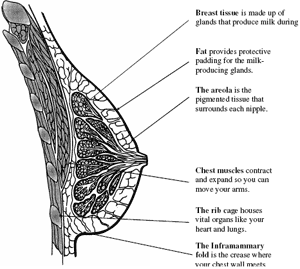When it comes to financial obligations,
the association recognizes that at the time of implantation, the surgeon had no
reason to believe they might be inserting a faulty device, "so cannot be
penalized for the company's dishonesty and indiscretion". However, due to
the sensitive nature of the situation, and in light of preserving the members'
good names, the association recommends that they try to help patients to "effect
necessary changes".
Snijman says that there are four major
brands available locally that the association deems safe: Allergan, Conquest's Nagor
and Eurosilicone, and Johnson &Johnson Mentor.

Cape Town plastic surgeon, Dr Stuart Geldenhys
explains that refinements in surgical and anaesthetic techniques, along with
major advances in breast implant technology make this a relatively safe and reliable
procedure. "The quality of silicone implants in general has significantly reduced
the risk of rupture, rippling and capsular contracture. The FDA has officially ruled
that breast implants are safe, with identified complications such as leaking,
rupture or scarring occurring rarely." He adds that it is important to
recognize that there are a number of different breast implant manufacturers around
the world. "Most maintain rigorous clinical development processes coupled with
extensive manufacturing and quality assurance testing to ensure the highest
quality and safety of their breast implants." He adds that he personally uses
Mentor, Allergan and Eurosilicone, as they comply with various international
standards such as ISO and EU requirements and are FDA approved.
Professor Justus Apffelstaedt, Head of
the Breast Clinic at Tygerberg Hospital and associate professor at the University
of Stellenbosch, says that implants are generally safe. "It is interesting
to observe that with breast cancer screening, we regularly find prostheses that
have ruptured while the patients are totally asymptomatic." He adds that it
is well documented that about half of the women with these ruptures cannot
remember any significant trauma to the breasts. "Most ruptures are contained
in the capsule of fibrous tissue that the body forms around the prosthesis with
time, and generally, there is consensus that these women may not require
prosthetic removal if they are asymptomatic. If there is leakage of silicone into
the tissues beyond the capsule, then silicone can elicit an inflammatory
reaction in the tissues and be taken up into the lymph nodes." He says
that at times, it may be difficult to differentiate this from breast cancer
with ultrasound and mammograms, and it takes special skills of the mammographer
in assessing this. He does, however add, that "there is no data indicating
the presence of prostheses increasing the risk of breast cancer; on the contrary,
there are reasons to believe that women with augmentations have less breast cancer
than those without". But hard data to support this is lacking,
Apffelstaedt explains. "Current recommendation is that women should go for
breast cancer screening on a regular basis whether they have augmentations or
not."

Breast
structure
Professor Frank Graewe, head of the division
of plastic and reconstructive surgery at the department of surgery. Faculty of Health
Sciences at the University of Stellenbosch says that there is the alternative of
saline filled implants, which are filled with sterile salt water but have the
same silicone shell. "However, silicone is still the best implant material
available at present." He says that your implants should last as long as they
don't give you any problems. "There is no reason to replace implants after
20 or 30 years if the patient is happy and the implant feels and looks normal."
On the other hand, he suggests, if the implant becomes "deformed" after
a few months or years, it needs to be removed or replaced.
Both Snijman and Geldenhys say that it
is important to know what brand of implants you have. You should receive an implant
ID card after your operation that gives you information about the implant, the size
and batch number. The surgeon's name and date of implantation should also be recorded.
Should you not have this card, contact your surgeon and request this information.
“There
is no reason to replace implants after 20 or 30 years if the patient is happy
and the implant feels and looks normal”
FACTS
TO CONSIDER
Norman offers the following advice:
"Choosing the right surgeon for
you is one of your most important responsibilities as a breast implant
patient." He adds that you should ensure that the surgeon you choose is a
member of the Association of Plastic and Reconstructive Surgeons of South
Africa (APRSSA), as plastic surgeons are specifically trained and accredited to
perform augmentation mammoplasty. "Most importantly, you must find a
surgeon who will listen to you and understand your goals. Make sure that the
pre-operative planning is part of the surgical routine as you are integral in
the decision-making process."
Ask the following questions:
1. Does the surgeon have before
and after photos to look at?
2. What are the reasonable results
to expect?
3. What are the risks and complications
associated with having breast implants?
4. What other additional implant-related
operations can I expect over my lifetime?
5. How will my breasts look if
I choose to have the implants removed without replacement?
6. Which shape, size, texture of
implants, incision site and placement site is recommended for me?
7. What make of implants will the
surgeon be using, and why has he chosen this particular brand?
8. How should I prepare for surgery?
9. How will my ability to breastfeed
be affected?
10. How can I expect my augmented breasts to
look, or change, over time?
11. How will my augmented breasts look after
pregnancy?
12. Does this implant comply with international
standards, such as carrying a CE mark, or is it FDA approved?